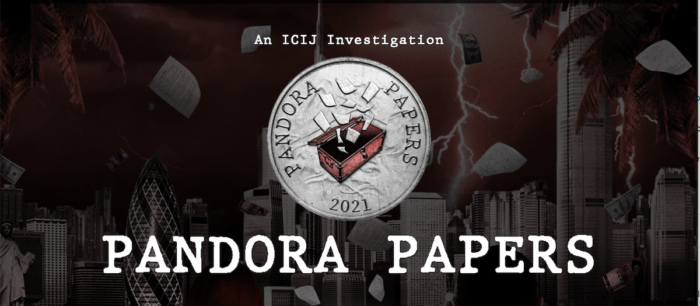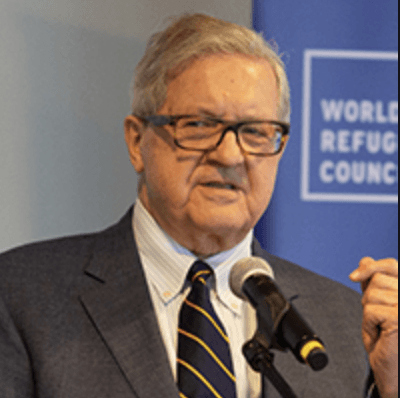‘Canada should take the lead in promoting the development of an International Anti-Corruption Court.’
Lloyd Axworthy and Fen Osler Hampson
The stunning revelations in the Pandora Papers, a leak of offshore corporate records of the rich and famous disseminated by the International Consortium of Investigative Journalists, is but the latest in a string of eye-popping disclosures about the lengths to which the wealthy will go to hide their ill-gotten gains to avoid paying taxes.
A coordinated international response to eliminate tax havens and the use of anonymous shell companies will help address this problem. A global minimum corporate tax as proposed by U.S. Treasury Secretary Janet Yellen would be a good start.
But tax evasion and fancy accounting are just the tip of the proverbial iceberg. In many countries, disguised monies are stolen or corruptly obtained by officials and those who hold high public office. Is there anything we can do about them and what some refer to as “grand corruption”? The short answer is yes, though the scale of the problem is daunting.
According to the World Bank, endemic corruption is a major threat to poverty alleviation in many countries and disproportionately affects the poorest members of society who often are coerced into paying bribes to unscrupulous officials. The World Economic Forum (WEF) estimates that corruption, bribery, theft, tax evasion and other illicit financial flows cost developing countries $1.26 trillion U.S. per year (more than half of Canada’s GDP).
The COVID pandemic is also likely to increase levels of corruption and accelerate the “democratic deficit” as public health systems are exploited by profiteers and rapacious officials. A pre-COVID study, conducted by the U.S. National Academy of Sciences, found that roughly $455 billion of the $7.35 trillion spent annually worldwide on health care is lost to fraud and corruption.
In many countries, law enforcement officials and judges are either ill-equipped to investigate these kinds of crimes or hampered by corruption in their own ranks. Where elites essentially have impunity from corruption and local justice systems are unable to hold them accountable, a proposed remedy is to create an International Anti-Corruption Court (IACC), which would have jurisdiction to prosecute grand corruption.
Like the International Criminal Court, that jurisdiction would be complementary. It would be exercised only when the courts in the victimized country are unable or unwilling to undertake prosecutions themselves. Such an institution would not only help strengthen the enforcement of criminal laws against corruption, but also have the potential authority to recover, repurpose and repatriate stolen assets.
But there are other reasons for an IACC. One of the biggest drivers of mass migration and refugee displacement is corruption. Corruption is not the only reason why people are forced to flee their homeland — conflict and political instability are usually the main causes — but corruption corrodes the legitimacy of governments as they fail to meet the needs of their citizens.
In Afghanistan, for example, widespread corruption by public officials, fuelled by billions in development assistance, undermined public confidence in the country’s institutions, paving the way for the return of the Taliban.
Canada should take the lead in promoting the development of an IACC. The Liberals and Conservatives championed the idea in their party platforms in the recent election. Bipartisanship is a rare commodity, but this is one initiative where our two major parties can work together with like-minded countries, like the Netherlands and Norway, where there is also keen interest in the proposal.
Canadians are proud of the key role our country played in creation of the ICC almost 25 years ago. By leading the effort to create the IACC, we can once again make an enduring contribution in the global effort to strengthen the rule of law and hold wrongdoers to account.
This article was first published in the Toronto Star.


